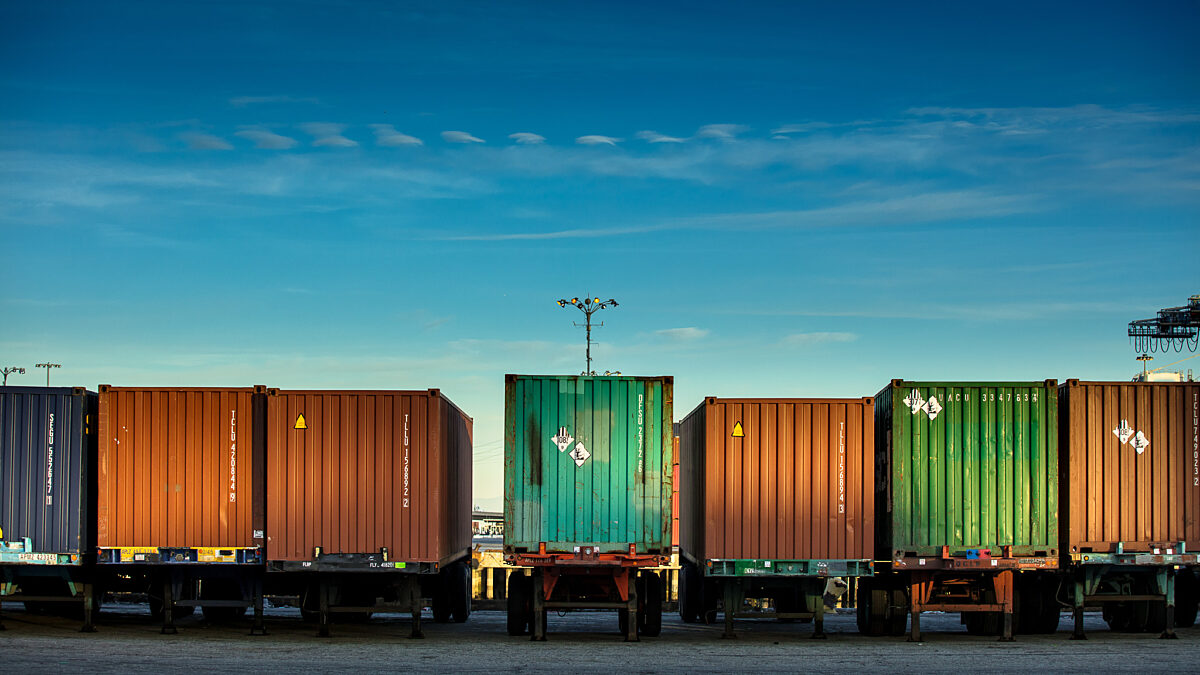American Agriculture Can’t Afford to Lose out on Trade
TOPICS
TradeGuest Author
Special Contributor to FB.org

photo credit: Getty
Guest Author
Special Contributor to FB.org
By Hope Pjesky
As a farmer, it saddens me the way anti-trade rhetoric has escalated in the media and political climate over the last few years. Overlooking the benefits, people are too often quick to write off free trade agreements. They seem to forget the basic economic principle of comparative advantage, which allows people to do what they are best at and trade with others for the goods and services they lack. When this principle is followed, everyone benefits from access to the best and most affordable products and services.
International trade is incredibly important to hundreds of thousands of American farm and ranch families, including mine. Using knowledge and innovation, American farmers and ranchers have become very efficient at growing a diverse and abundant supply of food, fiber and fuel. Our productivity provides American consumers with more nutritious food choices, at lower prices than any other country in the world. But some of the products we take for granted in our grocery stores wouldn’t be available without trade, due to the limits of our local climates and growing seasons. For example, tropical products such as coffee, cocoa and bananas cannot be produced in the continental U.S.
International trade is incredibly important to hundreds of thousands of American farm and ranch families, including mine.
American farmers and ranchers are so efficient, in part, because we specialize in growing crops and raising livestock that are best suited to our land and climate. This efficiency allows us to grow an abundance of certain agricultural products to sell to markets around the world. And that’s vital to keeping agriculture and the jobs it supports on American soil alive and well. With 95.6 percent of the world’s consumers living outside the U.S., family farmers like me depend on international trade to make our businesses sustainable.
On our farm in Oklahoma, we produce wheat and beef for consumers in the U.S. and abroad. Our climate is challenging for growing most crops but the crop best suited to our region is hard red winter wheat, the type of wheat used in the bread that Americans eat every day. American family farmers depend on international markets to keep us in business, however, as demand is not high enough in the U.S. alone. Each year between 50 and 60 percent of the hard red winter wheat grown in the U.S. is exported to many countries around the world, including Mexico, Japan, the Philippines, China, Nigeria and South Korea.
In spite of our nation’s love affair with red meat, valuable beef would be tossed out if our farm sold only to domestic customers. Access to markets in other countries that use the cuts of beef American consumers don’t not only adds value—between $250 and $300 for each calf—but also reduces food waste. For example, there isn’t much demand for beef short ribs, tongue or internal organ meat in the U.S., but in South Korea short ribs are in high demand. In Mexico, tongue tacos are a favorite, and consumers in many countries around the world welcome internal organ meats on their dinner plates. Without trade our farm couldn’t make a living just producing the beef Americans enjoy.
Next time you hear that trade is bad for American businesses, take a moment to consider the safe, affordable food you enjoy every day, and imagine for a moment what your shopping cart and dinner table might look like if a lack of trade opportunities forced American farms out of business.
Hope Pjesky
Hope Pjesky, a member of AFBF’s GO Team, blogs hopepjesky.wordpress.com. She is a farmer/rancher in northern Oklahoma, where her family grows wheat and raises beef cattle.
Top Issues
VIEW ALL